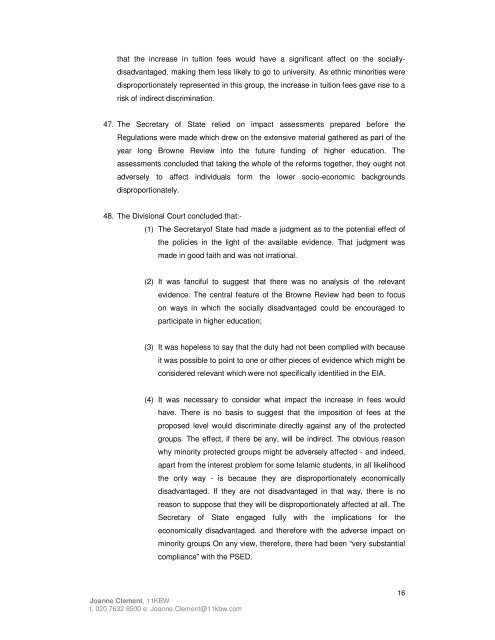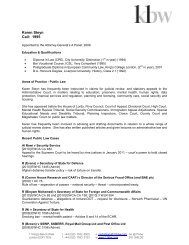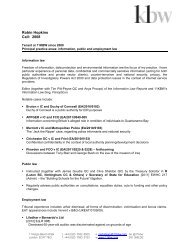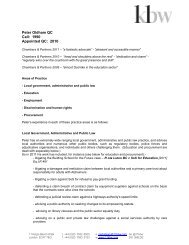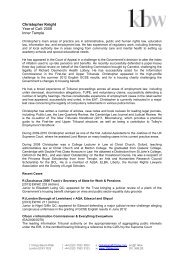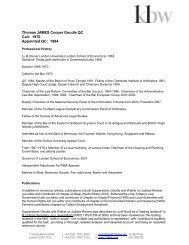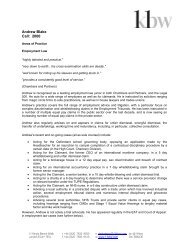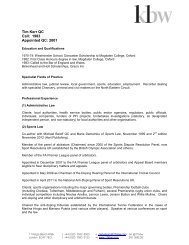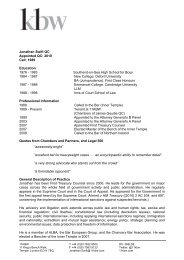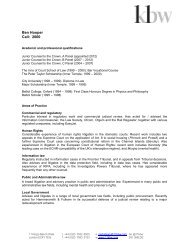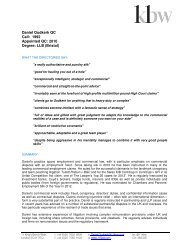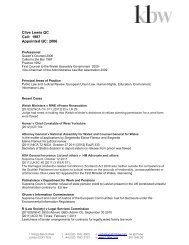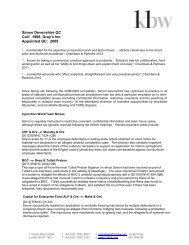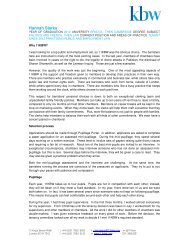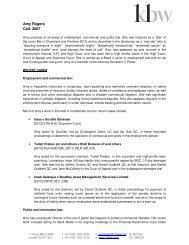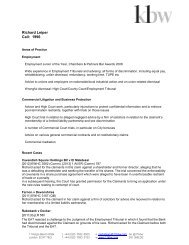THE PUBLIC SECTOR EQUALITY DUTY Joanne Clement - 11kbw
THE PUBLIC SECTOR EQUALITY DUTY Joanne Clement - 11kbw
THE PUBLIC SECTOR EQUALITY DUTY Joanne Clement - 11kbw
You also want an ePaper? Increase the reach of your titles
YUMPU automatically turns print PDFs into web optimized ePapers that Google loves.
that the increase in tuition fees would have a significant affect on the sociallydisadvantaged,<br />
making them less likely to go to university. As ethnic minorities were<br />
disproportionately represented in this group, the increase in tuition fees gave rise to a<br />
risk of indirect discrimination.<br />
47. The Secretary of State relied on impact assessments prepared before the<br />
Regulations were made which drew on the extensive material gathered as part of the<br />
year long Browne Review into the future funding of higher education. The<br />
assessments concluded that taking the whole of the reforms together, they ought not<br />
adversely to affect individuals form the lower socio-economic backgrounds<br />
disproportionately.<br />
48. The Divisional Court concluded that:-<br />
(1) The Secretaryof State had made a judgment as to the potential effect of<br />
the policies in the light of the available evidence. That judgment was<br />
made in good faith and was not irrational.<br />
(2) It was fanciful to suggest that there was no analysis of the relevant<br />
evidence. The central feature of the Browne Review had been to focus<br />
on ways in which the socially disadvantaged could be encouraged to<br />
participate in higher education;<br />
(3) It was hopeless to say that the duty had not been complied with because<br />
it was possible to point to one or other pieces of evidence which might be<br />
considered relevant which were not specifically identified in the EIA.<br />
(4) It was necessary to consider what impact the increase in fees would<br />
have. There is no basis to suggest that the imposition of fees at the<br />
proposed level would discriminate directly against any of the protected<br />
groups. The effect, if there be any, will be indirect. The obvious reason<br />
why minority protected groups might be adversely affected - and indeed,<br />
apart from the interest problem for some Islamic students, in all likelihood<br />
the only way - is because they are disproportionately economically<br />
disadvantaged. If they are not disadvantaged in that way, there is no<br />
reason to suppose that they will be disproportionately affected at all. The<br />
Secretary of State engaged fully with the implications for the<br />
economically disadvantaged. and therefore with the adverse impact on<br />
minority groups On any view, therefore, there had been “very substantial<br />
compliance” with the PSED.<br />
<strong>Joanne</strong> <strong>Clement</strong>, 11KBW<br />
t. 020 7632 8500 e. <strong>Joanne</strong>.<strong>Clement</strong>@<strong>11kbw</strong>.com<br />
16


